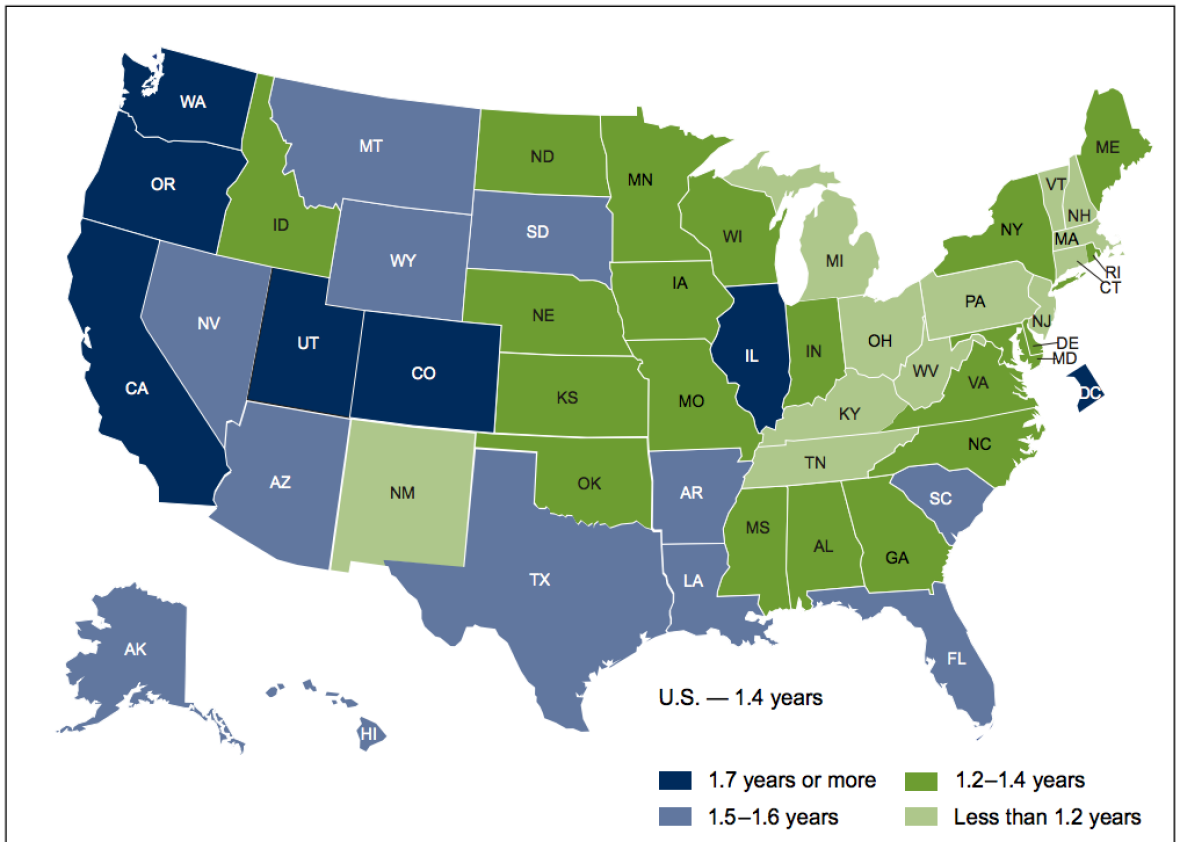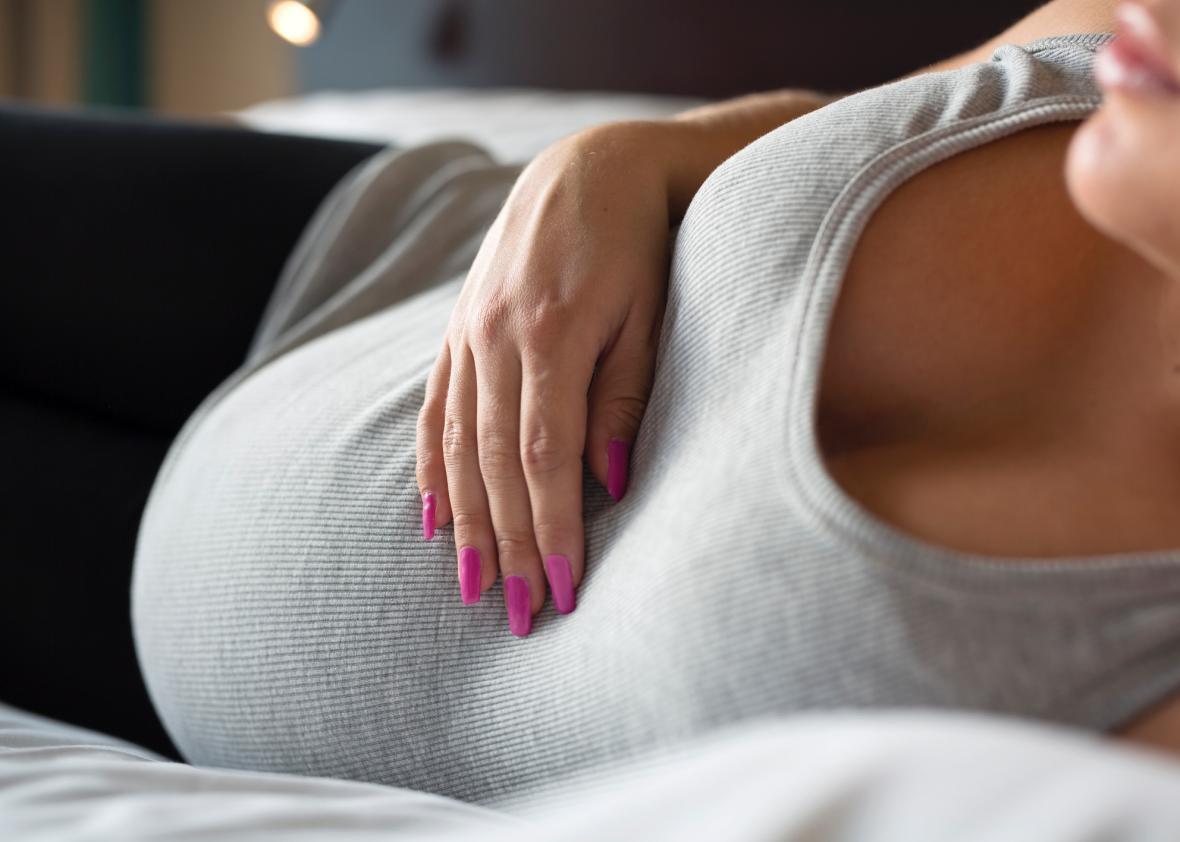The average age of first-time mothers is steadily increasing in the U.S., largely because of a drop in teen births. According to a new report from the Centers for Disease Control and Prevention, between 2000 and 2014, the mean age of a U.S. woman at first birth rose from 24.9 to 26.3, a difference of 1.4 years.
Researchers found that this trend applied across all states and Washington, D.C., with the greatest increases showing up in western states. D.C. saw the greatest increase in age of first birth between 2000 and 2014—3.4 years, likely in part because the aughts were marked by an influx of wealthy couples into the city—while Connecticut, Michigan, New Hampshire, and West Virginia each noted a positive change of less than one year.

CDC/NCHS, National Vital Statistics System
All race and Hispanic origin groups saw the mean age at first birth rise, too. Women who identified as Asian or Pacific Islanders are still, on average, the oldest first-time mothers (27.8 years old in 2000 and 29.5 years old in 2014), and American Indian or Alaska Native mothers are still the youngest (21.6 years old in 2000 and 23.1 years old in 2014). During this time period, non-Hispanic black mothers saw the largest change in their first-time birth average age, an increase of 1.9 years.
The main reason for these demographic shifts is a decline in the percentage of first-time births that occur among teenagers, which has dropped 42 percent (from about 1 in 4 births to 1 in 7) since 2000. A spokesperson from the National Campaign to Prevent Teen and Unplanned Pregnancy’s Bill Albert told NPR that he chalks this up to “less sex and more contraception.” Indeed, in recent years, more gynecologists have begun recommending long-acting reversible contraception like IUDs to teenagers, and the average age of first sexual experience has risen significantly since the late 1980s. U.S. rates of teen pregnancy and teen abortion have both fallen sharply since their respective peaks around 1990.
The average age for all births—first child, second, third, and so on—remained stable for the most part in the early 2000s before dropping around 2005. The most positive change took place between 2009 and 2014, when the Obama administration began to roll back the abstinence-only sex-education policies of George W. Bush.
While teenagers had fewer kids, the proportion of all first births happening in older age brackets increased. Between 2000 and 2014, the percentage of first-time mothers who were 30 to 34 years old rose from 16.5 percent to 21.1 percent; the 25-29 and 35-and-over groups experienced smaller degrees of growth. But the proportion of first-time mothers in the 20-24 age bracket held steady from 2000 to 2014. This means that women are having children later in general, not just waiting until they’re out of their teens, which could do as much for women’s wages and education as it does for their children’s wellbeing.
